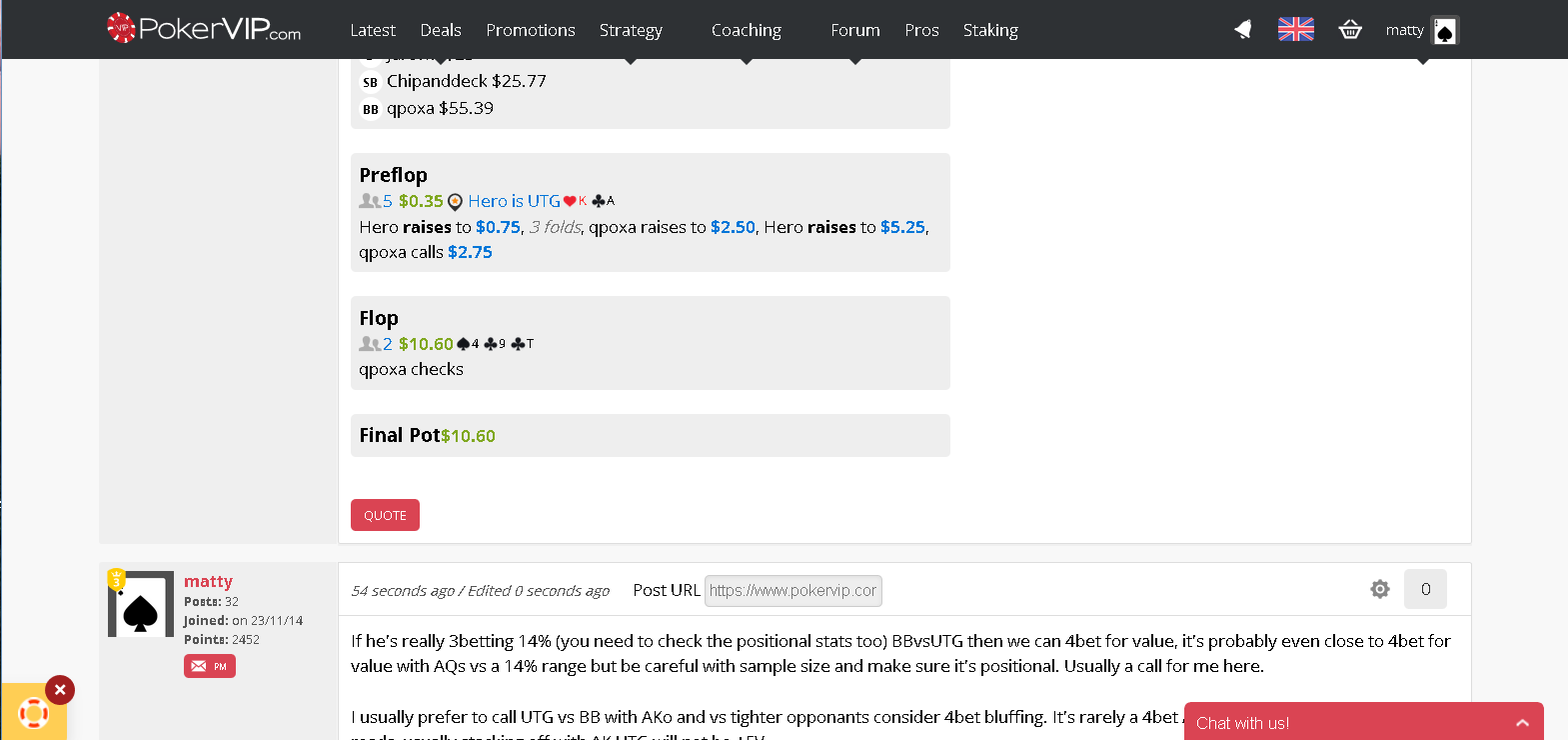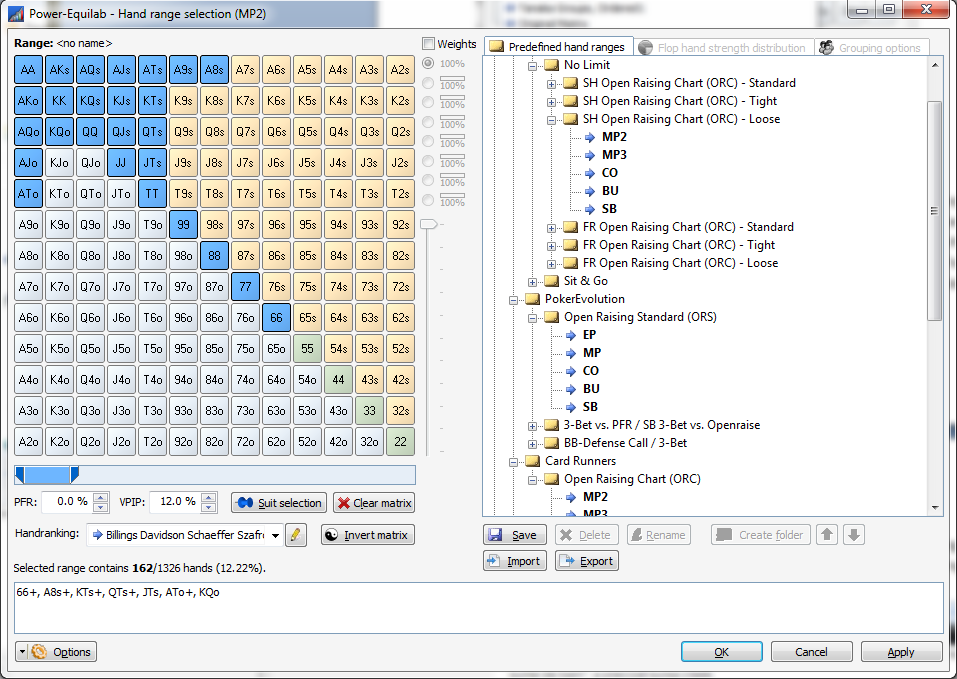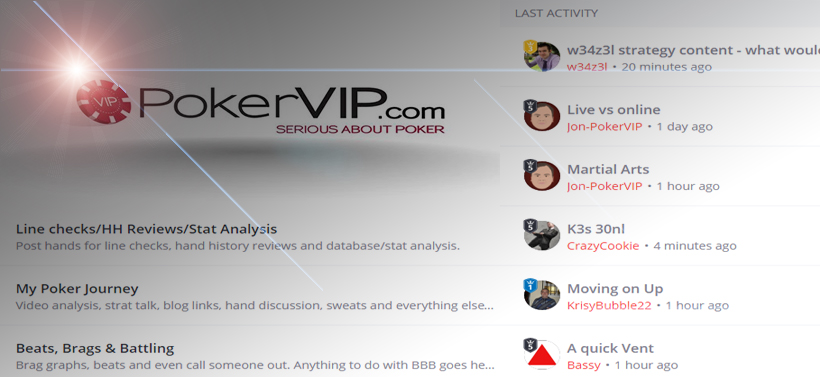
There are many different ways of improving your poker game. From coaching videos, through strategy articles and sweat sessions to database analysis. There's certainly a lot to choose from and as poker players, we know all too well that where there's an opportunity to choose there's also an opportunity to fail. In a game of small edges, a simple act of picking something that you 'like' or that 'you think should work' sometimes isn't good enough and instead, we should try to figure out what's 'the most efficient' or 'the most effective'.
Hand history discussions are often overlooked and ignored in favor of other - more "hands-off" - options like coaching videos and sweat sessions, and while creating forum threads and interacting with other users requires comparatively more effort, "Line Check"threads can be an absolute goldmine of knowledge, especially for the intermediate and beginner players out there. In this article, we're going to discuss how to make the most out of the extremely powerful learning tool that line check threads can be.

Why Line Check?
What makes the hand history discussions on poker forums like PokerVIP worth adding to your learning regiment? The answer is fairly simple. Line check threads are a free substitute for arguably the most effective and the most expensive way of improving your poker skill and knowledge - private coaching.
Contrary to other, less involved, educational materials like the coaching videos for example, or even more involved and complicated, but performed on your own like database analysis, line check threads can provide you with external feedback and that's absolutely invaluable because variance (along with numerous biases human beings are vulnerable to) makes it very difficult for us to accurately judge our own skill level. It's often far easier to pinpoint your crucial leaks when you can rely on the help and insight of other people.

Hand Selection
Now that you know how beneficial creating line check threads can be, let's briefly discuss how to go about selecting the hands for the forum discussions. It's important to realize that we all have a strong negative bias and therefore you'll naturally favor spots where you lost a bunch of money over the more mundane ones or even the big winning hands. Secondly, we tend to get the most excited and assign the most importance to the big spots that had the most impact on our bottom line in the short run. In reality, medium size pots are often far more important to our win rate in the long-run.
This is because in huge preflop wars or difficult turn/river decisions for 100+ blinds we're often comparing extremely narrow and extremely similar ranges with our opponents. You'll be on the giving and the receiving end of an AA vs. KK preflop bad beat roughly the same number of times throughout your whole career. Similar rules apply to complicated river check-raise situations on a wet board where you're often comparing just a few combos of hands that are very close to the nuts on a particular texture.
The way we play in 20-50bb spots will usually vary much more from the way other players in the population are playing them, than the way we play in 100+ bb spots. This doesn't mean you should completely disregard big pots when selecting hands for your line check threads, it just means that there's perhaps some edge you can gain by being mindful of our bias for what's big and negative.

Thread Names
Naming the line check thread can seem trivial but it's the first opportunity that you get for making a mistake. Like we've already alluded to before, human beings are extremely biased creatures and the volatile nature of poker isn't doing us any favors in that regard. This is why the name of your line check thread should be simple, descriptive and devoid of any suggestions.
What I mean by that is the fact that "AKs NL5" won't really affect the reasoning of the people posting in your thread, however, "What should I do on the turn in this spot???" will automatically bring attention of the poster to the issue that you consider the most important even if your notion is completely wrong. Maybe you've made a very simple preflop mistake in the hand that is far more important to your overall strategy than the turn question you're so desperate to hear the answer to?

Hide the Results!
Just like a suggestive thread name can divert the attention of the posters so can including the result of the hand in your line check thread. Make sure to clip that information before submitting the thread, otherwise, you decrease the chance of getting a meaningful answer.
Include as Much Information About Your Opponents and Table Dynamics as You Can
Posting a raw hand history is fine if you're an absolute beginner or if you're interested in learning the optimal way of playing a certain spot against the average opponent.
That being said, the more information about the other players in the hand and the state of the game you're able to provide the higher quality answers you'll usually receive. Consider making a screenshot of the villain's HUD and including it in the thread. Write a few words about the table dynamics, your image and the history that you had with other players.

Ask Followup Questions!
The line check thread doesn't have to end with the first few comments that you receive. Most people end their involvement in a hand history discussion with their first post and this is exactly the reason why you shouldn't.
 More Top Rated Content
More Top Rated Content
Articles
Coaching Videos

